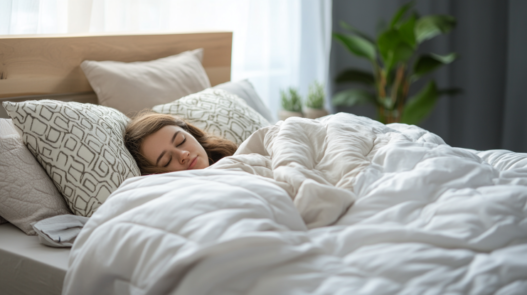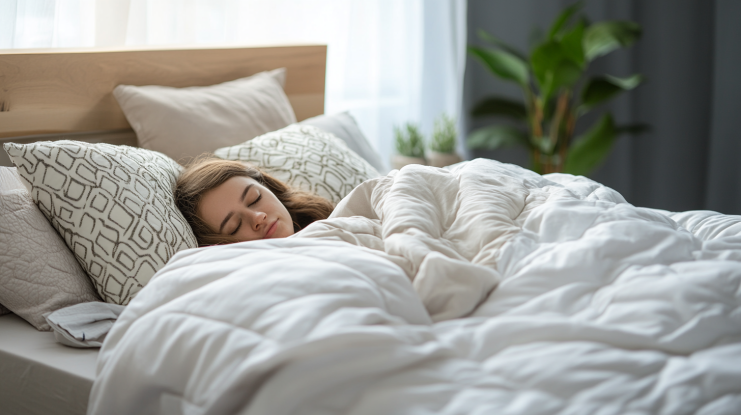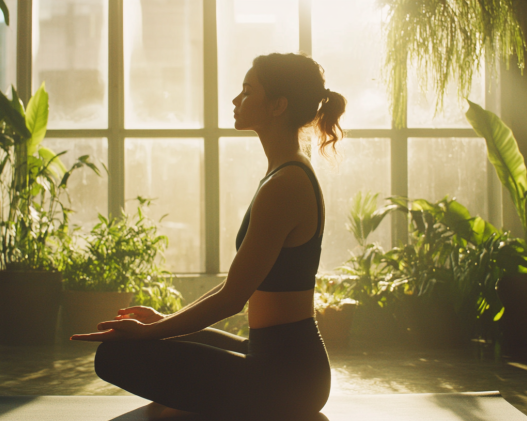Did you sleep well last night? It’s a common experience: many people might go to bed, seemingly sleep the entire night, but when they wake up, they still don’t feel refreshed or full of energy. Instead, they might feel tired, foggy, and out of sorts. This is often a sign of what’s called “ineffective sleep”.
What Exactly Is “Ineffective Sleep”?
Ineffective sleep is more than just poor rest – it can also refer to nights where you toss and turn, sleep lightly, or have fragmented sleep cycles, even if you’re technically “in bed” for hours. While most people think that simply closing their eyes and lying down guarantees sleep, that’s not necessarily the case.
Real, high-quality sleep is structured. It includes several phases like sleep onset, light sleep, slow-wave sleep (SWS), and rapid eye movement (REM) sleep. The crucial stages for restorative sleep are the slow-wave sleep and REM sleep. The key to effective sleep isn’t just being unconscious; it’s about going through the deeper, rejuvenating stages of sleep.
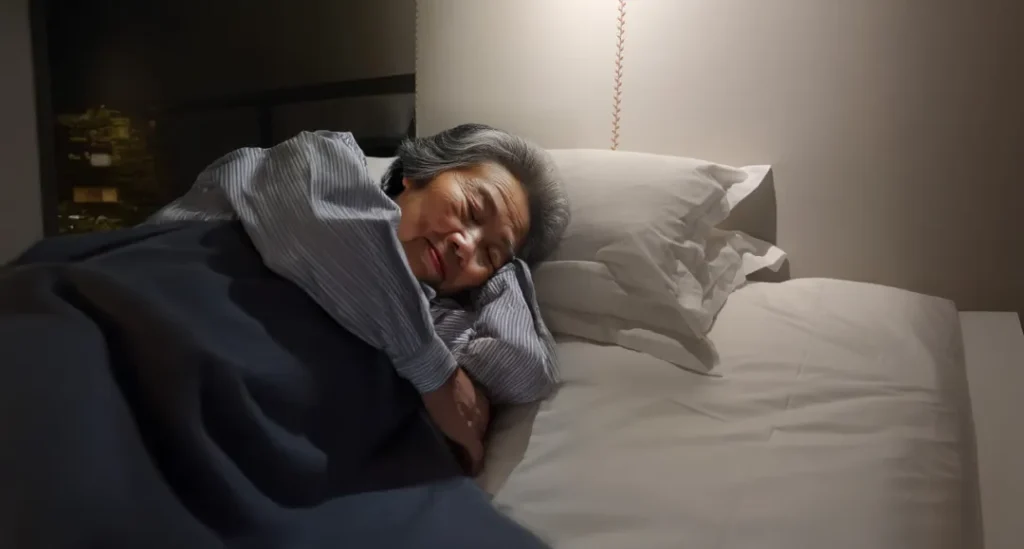
What happens to many individuals is that they may feel drowsy and lie in bed for long periods, but the sleep they get may not be deep enough. This often results in low sleep efficiency, where a person might have shallow sleep and wake up frequently. Even if they’re not experiencing insomnia, they’re still at risk for ineffective sleep, which can lower sleep quality.
For the elderly, ineffective sleep and fragmented sleep can be more prevalent. As people age, sleep patterns become more disrupted. A 2022 study published in Science by researchers from the Stanford School of Medicine pointed out that the brain’s hypocretin neurons play a significant role in regulating wakefulness and sleep. As we get older, these neurons can become overly active, triggering excessive arousal and more sleep fragmentation. This explains why many elderly people struggle with poor-quality sleep as they age.

Research screenshots
5 Ways to Improve Sleep Quality
1. Try Wearing Socks While Sleeping
Have you ever wondered if wearing socks to bed could make a difference? It turns out that it can! A 2018 study published in the Journal of Human Physiology found that wearing socks during sleep can improve the quality of sleep.
In the study, participants who wore socks to bed experienced:
- Falling asleep 7.5 minutes faster
- 7.5 times fewer interruptions during the night
- An average of 32 minutes more sleep
- A 7.6% improvement in overall sleep efficiency
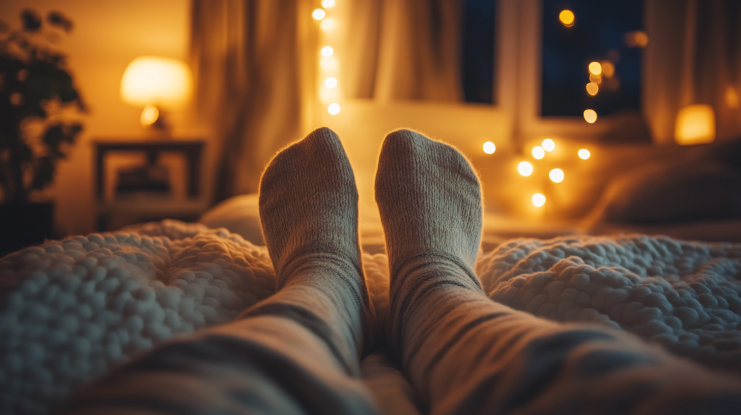
Why do socks help? It’s all about regulating body temperature. During sleep, parts of the body like the legs and feet are sensitive to temperature changes. By keeping your feet warm, socks help create a comfortable and stable environment for falling into deep, restful sleep.
2. Use a Heavier Blanket for Sleep
Do you prefer sleeping with a light blanket, or do you enjoy a heavier one? You might be surprised to know that a heavier blanket could be just what you need for a better night’s sleep. A study published in Journal of Sleep Research in October 2022 found that using a heavier blanket can increase melatonin production, a hormone that helps regulate sleep.
Compared to lighter blankets, weighted blankets increased melatonin levels in participants’ saliva by approximately 30%. This increase in melatonin helped promote deeper, more restorative sleep.
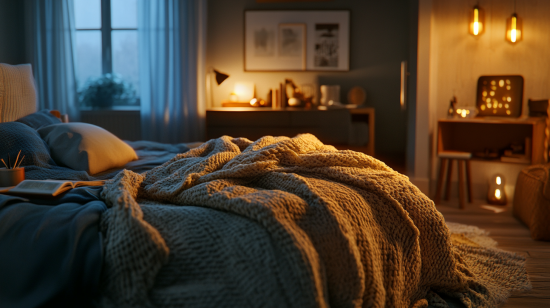
3. Incorporate Sleep-Enhancing Exercises
Can exercise really help you sleep better? Absolutely! A study published in the British Medical Journal of Sports and Exercise in July 2024 revealed that doing resistance exercises before bed can extend sleep duration. The key is to do them within four hours of bedtime.
The study recommended these simple exercises:
- Squats: Mimicking the motion of sitting in a chair, ensuring that your knees don’t go beyond your toes.
- Heel Raises: Standing and raising your heels to contract the calf muscles, then slowly lowering them back down.
- Hip Extensions: Standing, lifting your knee up, and extending your leg at the hip joint.
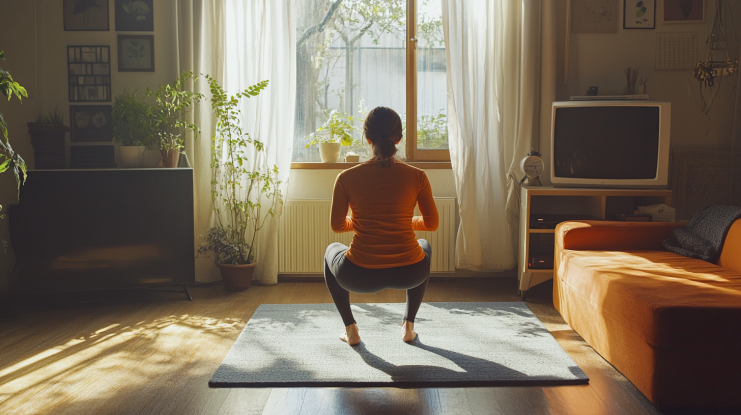
Each exercise takes just 3 minutes and should be repeated every 30 minutes. These exercises can extend your sleep by about 30 minutes.
4. Soak Your Feet Before Bed
If you’re not a fan of wearing socks while you sleep, another option is to soak your feet in warm water before bed. This practice is just as effective. A 2024 study published in the Journal of Integrative and Complementary Medicine found that soaking your feet in warm water for one hour before bedtime can significantly improve sleep quality, particularly in older adults.
The study also discovered the optimal conditions for foot soaking:
- Water temperature: 40°C (104°F)
- Soak time: No more than 20 minutes
- Water level: Should rise about 10 cm above the ankles

Research screenshots
By adhering to these guidelines, soaking your feet before sleep can help promote better rest.
5. Put Your Phone Down Before Sleep
Do you find yourself scrolling through your phone right before bed? If so, you’re not alone. However, it turns out that using your phone before bed can interfere with your sleep. A 2021 survey by a U.S. sleep evaluation agency found that people who spent just 8 minutes on their phones before sleep took an average of 1 hour to fall asleep.
Why does this happen? The culprit is blue light emitted by phone screens, which increases alertness and disrupts your body’s natural sleep-wake cycle. The result? You end up delaying your sleep by a significant amount.
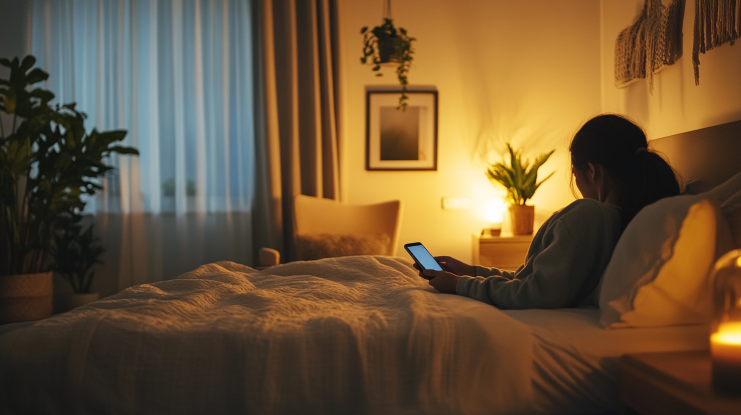
Conclusion
Improving your sleep quality doesn’t require drastic changes – even small adjustments like wearing socks, using a heavier blanket, exercising before bed, soaking your feet, and avoiding screens can significantly boost your sleep. Start implementing these habits today, and experience better sleep and a healthier lifestyle!







